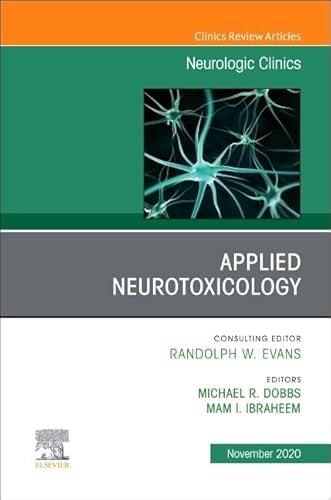Michael R. Dobbs, M.D.
Chair of the Clinical Neurosciences Department Florida Atlantic University
- Boca Raton FL
Michael Dobbs’, M.D., focuses on vascular neurology, particularly the pathophysiology and treatment of amyloidosis.
Social
Biography
Areas of Expertise
Accomplishments
Meritorious Service Medal
U.S. Air Force
2005
Education
University of Kentucky
B.S.
Microbiology
1994
University of Kentucky College of Medicine
M.D.
Medicine
1998
Harvard T.H. Chan School of Public Health
MHCM
Health/Health Care Administration/Management
2013
Affiliations
- American College of Healthcare Executives
- American Neurological Association
Selected Media Appearances
New drug gives hope to South Floridians affected by Alzheimer’s
WLRN radio
2024-07-18
The people who may be forgetting “phone numbers you use frequently, are getting lost driving to places that you know, and that you've driven to before, if you're forgetting names and not remembering later, these are worrisome signs,” said Dr. Michael Dobbs, chair of the Clinical Neurosciences Department at Florida Atlantic University’s Schmidt College of Medicine, where he's also a professor and the clinical affairs associate dean.
Understanding Alzheimer's Disease: the Basics
WebMD online
2024-07-08
What Is Alzheimer’s?
It’s a disease that robs you of your memory. At first, you may have a hard time remembering recent events, though you might easily recall things that happened years ago.
As time goes on, other symptoms can appear [...]
Patents
Composition and method for control and treatment of cutaneous inflammation
US6300326B1
Issued Aug 3, 2000
The present invention is directed to methods and compositions for treating skin disorders. The present invention is easily administered and can be used for both humans and animals. The compositions of the present invention comprise borate compounds and provide relief from skin disorder symptoms and lesions. Additionally, the present invention can be used to provide long term maintenance of symptom-free skin.
Selected Articles
Neurotoxicity and Chemoreception: A Systematic Review of Neurotoxicity Effects on Smell and Taste
Neurologic Clinics2020
Several different types of exposure have the potential to produce olfactory and gustatory deficits related to neurotoxicity. Although the literature contains relatively few studies of such chemoreceptive dysfunction in the context of toxic exposure, this review explores the strength of such published associations. Several studies collectively demonstrated moderately strong evidence for an association between manganese dust exposure and olfactory deficits. Evidence of associations between individual chemicals, therapeutics, and composites, such as World Trade Center debris, and olfactory and gustatory deficits remains limited or mixed. Further need for controlled studies for clinical management, exposure limits, and policy development is identified.
Next Steps for Clinical Neurotoxicology
Neurologic Clinics2020
We need more neurologists trained in neurotoxicology. Emergency neurotoxic syndromes can be mislabeled, and a trained consulting neurologist can help to find the correct diagnosis. It is difficult for ambulatory patients to find clinical neurotoxicology expertise, and they will travel far. One of us ran a niche practice in ambulatory neurotoxicology for several years, and patients routinely came from distant states for consultation. We are aware of a very few isolated similar consultative clinics in Clinical Neurotoxicology in the United States.
Toxin-induced cerebellar disorders
Neurologic Clinics2020
The cerebellum plays an important role in motor and nonmotor systems, with damage resulting in clinical manifestations presenting as weakness, ataxia, dysarthria, and nystagmus. There are numerous environmental and industrial agents as well as medications that, through either accidental or intentional use, can result in a range of neurologic presentations. The variability in the presentation is important to recognize promptly so that early cessation in exposure, use, or abuse can be initiated to reduce the severity of symptoms. Recognition of an agent causing the particular pathology is important so that the route of exposure, and subsequent treatment options can be identified.
Abstract P885: Sex-Based Differences of Cerebral Venous Sinus Thrombosis Patients in the Appalachian Region
Stroke2021
Introduction: The majority of data describing Cerebral Venous Sinus Thrombosis (CVST) patients has been collected outside the United States (U.S.). Females are reported at higher incidence with more favorable outcomes. Available U.S. data have poor representation of the Appalachian region, which has a higher burden of chronic disease and lower socioeconomic level. The objective of this study was to examine the sex-based characteristics of an Appalachian CVST cohort.
Hemorrhagic stroke outcomes of KApSR patients with co-morbid diabetes and Alzheimer’s disease
Annals of Translational Medicine2021
Background Vascular risk factors, such as diabetes mellitus (DM), are associated with poorer outcomes following many neurodegenerative diseases, including hemorrhagic stroke and Alzheimer’s disease (AD). Combined AD and DM co-morbidities are associated with an increased risk of hemorrhagic stroke and increased Medicare costs. Therefore, we hypothesized that patients with DM in combination with AD, termed DM/AD, would have increased hemorrhagic stroke severity. Methods Kentucky Appalachian Stroke Registry (KApSR) is a database of demographic and clinical data from patients that live in Appalachia, a distinct region with increased health disparities and stroke severity.







